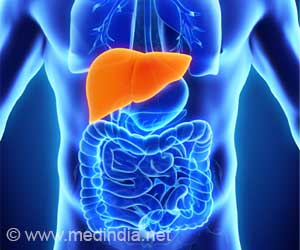A new immunotherapy drug pembrolizumab is found to be active against mucosal melanoma and is found to prolong the lifespan of bladder cancer patients.
- Pembrolizumab, a new immunotherapy drug is active against a rare sub-type of skin cancer (Mucosal melanoma).
- Immunotherapy can be used as a standard of care for treatment of mucosal melanoma.
- The drug is found to prolong the overall survival rate of bladder cancer patients.
There is no known cause for mucosal melanoma and usually has a poor prognosis due to late diagnosis. Most of the patients with metastatic cancer would survive for less than a year if they had received the conventional treatment.
The study results of the pembrolizumab drug for melanoma patients were reported. Dr.Marcus Butler, medical oncologist, Princess Margaret Cancer Center, Toronto, Canada, has also told the European Cancer Organization2017 that out of the 1567 patients who participated in the clinical trials KEYNOTE-001,002 and 006 had advanced mucosal melanoma.
He said, "Sixteen of these patients (19%) responded to treatment with pembrolizumab, of whom 12 are still alive without their disease progressing and, so far, the longest time some of these patients have continued to be successfully treated is more than 27 months."
Out of the 1483 patients who had other forms of advanced melanoma and who had received atleast one dose of the pembrolizumab drug - 33% of patients were found to respond to treatment and 72% were still alive without any disease progression. The average overall survival rate of the patients was nearly two years while for mucosal melanoma it was nearly 11.3 months.
Immunotherapy has improved treatment options for melanoma. Some patients with mucosal melanoma have also received complete responses for pembrolizumab drug which was given intravenously at doses of 2 mg/kg or 10 mg/kg every three weeks, or 10 mg/kg every two weeks, and were able to return to a normal life. Few of them have less responses and yet still benefited from treatment.
The study findings suggest that mucosal melanoma patients should be offered immunotherapy as a standard of care and must not be excluded even though it offers a bit lower response rates when compared to other melanomas. However further studies are conducted to improve benefit.
The drug mainly acts by binding to the programmed cell death protein 1 receptor and blocks the interaction between PD-1 and its ligands.
The ligands may activate the T lymphocyte cells and may affect both the tumor cells and the healthy cells.
Programmed-cell death protein 1 (PD-1) receptor is a receptor present on the surface of the T cells. Programmed death ligand 1 is a molecule which binds to the PD-1 receptor and is often over expressed in the cancer cells that enable them to evade the immune system and allows the cancer cells to grow.
Around 70% of the patients with mucosal melanoma with known PD-L1 status had PD-L1 positive tumors.
Dr. Butler, said, "The data presented here are important because they prove that patients with mucosal melanoma can benefit from anti-PD-1 therapy and should not be excluded from this treatment."
“At this stage we don't know why some mucosal melanoma patients responded to pembrolizumab, while others did not. This is an important question and research is ongoing." he added.
About 99% of the patients with mucosal melanoma received atleast one prior treatment and 39% of them received ipilimumab drug, a type of monoclonal antibody which is used in the treatment of melanoma.
The author also said that the results show patients to be benefited from pembrolizumab drug irrespective of whether they were being pretreated with ipilimumab drug.
Professor Peter Naredi, from the Sahlgrenska Academy, University of Gothenburg, Sweden, Chair of the Congress and President of the ECCO, also commented, "For rare cancer types it is difficult to evaluate new treatments in normal sized trials. But here Butler and colleagues pull three trials together and show that long-lasting responses also occur with pembrolizumab in patients with mucosal melanoma."
Pembrolizumab Drug For Bladder Cancer
Dr Andrea Necchi, attending physician in the Department of Medical Oncology at the Fondazione IRCCS Istituto Nazionale dei Tumori, Milan, Italy, said, that the results of the pembrolizumab drug trial were found to improve the overall survival with fewer side effects for patients with advanced bladder cancer when compared to patients given with chemotherapy.
Bladder cancer is the seventh most common cancer in men and is the seventeenth most common cancer in women. Around 430,000 cases of bladder cancer are being diagnosed every year.
The overall survival rate was 10.3 months with pembrolizumab while it was only 7.4 months with chemotherapy. The researchers also estimated that around twice as many pembrolizumab responders would respond to the therapy for atleast one year.
Dr Necchi, concluded, "In addition to the overall survival benefit over chemotherapy, pembrolizumab was also associated with a much lower incidence of treatment-related side effects. This is important because this patient population tends to be mostly elderly patients who have many other illnesses and health conditions as well. These results support the use of pembrolizumab as the new standard of care for advanced bladder cancer."
The side effects of the drug with any grades of severity were reported in 61% of the patients when compared to 90% of the patients treated with chemotherapy. Around 15% and 49% of patients with severe side effects with grade3,4 and 5 respectively.
Source-Medindia
















